Fruit Waste Could Give Cheap Organic Fertilisers in 90 Days. Punjab Farmers Share How!
A kinnow grower loses up to 40% of his/her farm production to natural fruit fall. This idea could stop this wastage and provide them with an additional income! #FarmersFirst
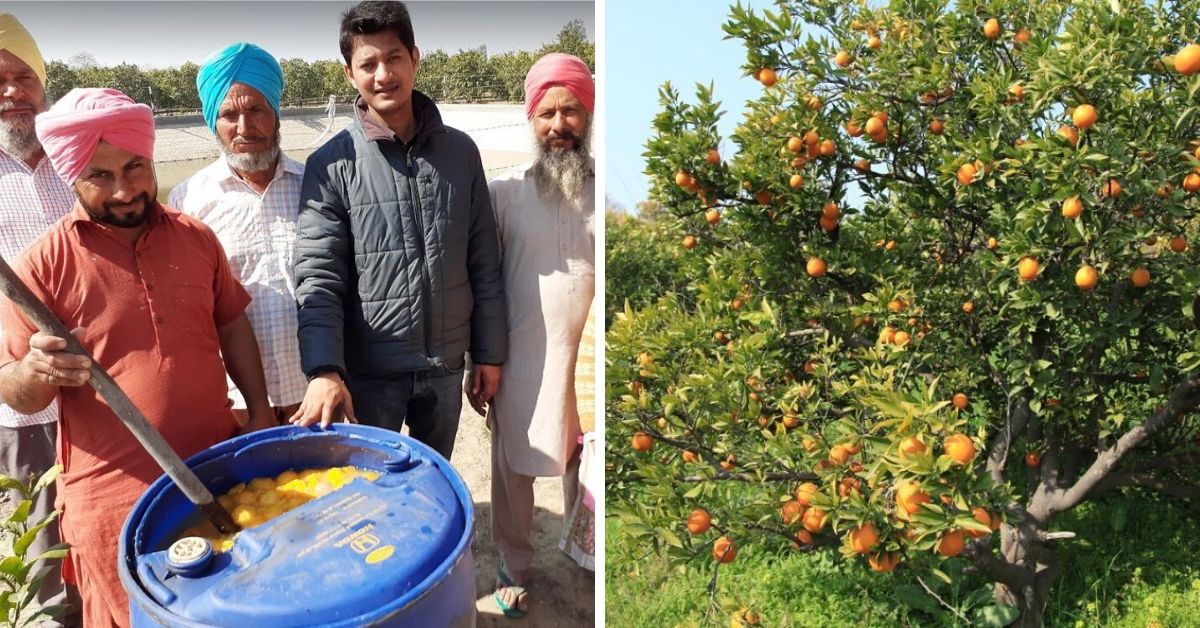
A year ago Vipesh Garg, the Budhlada Horticulture department Officer, proposed an idea to curb the massive wastage of Kinnow fruit in Mansa district of Punjab. Little did he know that his solution was going to usher in a big change.
Popularly known as the King of Fruits in Punjab, Kinnow is a hybrid of two citrus cultivars (Citrus nobilis and Willow Leaf). The state accounts for nearly 24 per cent of India’s kinnow production.
Kinnow’s high demand is traced to its healthy properties – rich in minerals, Vitamin C and packed with carbohydrates. Yet, Kinnow does not bear fruits for the farmer who nurtures it.
“On average, a kinnow grower loses up to 40 per cent of the yield just before the harvesting season due to natural fruit fall and as they fall before the harvest period, they cannot be consumed,” informs Garg
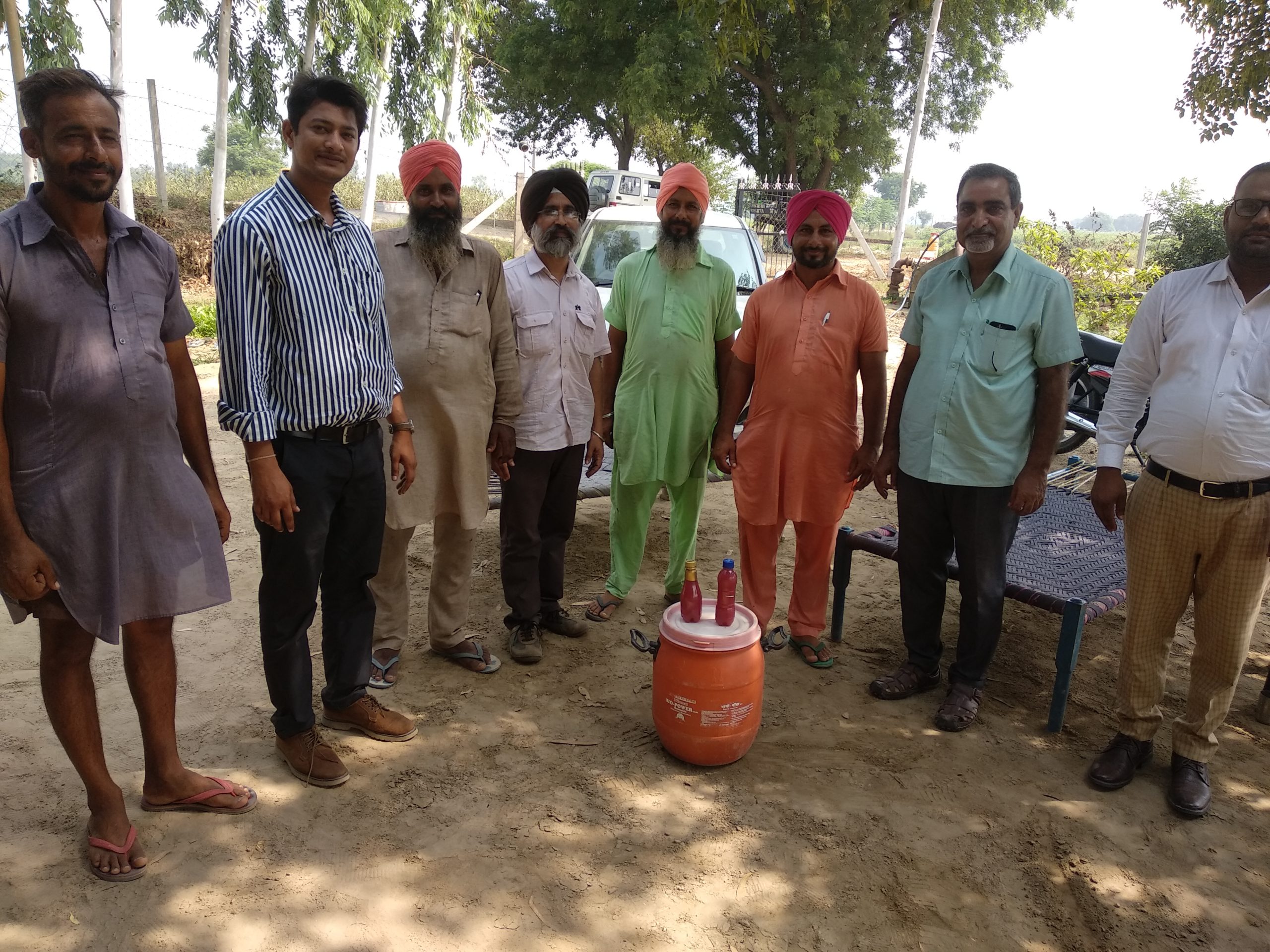
Using the concept of best-out-of-waste, he relayed his solution to his department. Where the farmers were mostly burying the fruit for fear of pests, they are now using the fallen fruit to make bio enzymes, a natural fertiliser that acts as an excellent pest repellent.
So far, five farmers across the district are benefiting from this project
The organically made bio-enzymes concoction prepared from Kinnow fruit waste and jaggery is also reducing the dependency of farmers on expensive and toxic chemicals fertilisers.
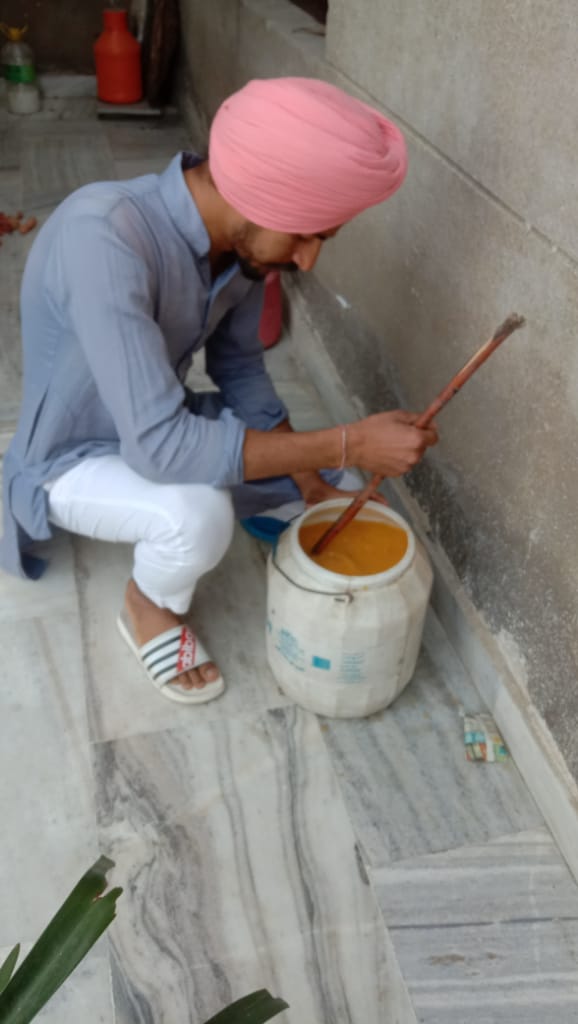
Also, Bio enzymes have the ability to restore soil’s nutrient cycle, promote root elongation and plant growth and increase the biomass. Overall a win-win situation for all.
Assessing the Problem
“When the waste kinnow decomposes, it pollutes the environment, further inviting diseases and pathogens,” Garg tells The Better India (TBI).
Thus, timely disposal of Kinnow becomes crucial as it can infect healthy fruits through pests. Most farmers end up burying it.
Furthermore, Kinnow is highly susceptible to Huanglongbing (previously known as citrus greening disease), caused by a vector-transmitted pathogen.
To fight the disease, farmers often use chemical fertilisers which further degrades soil fertility. The repercussions don’t stop there. We, as consumers, eventually eat the same chemical-infused fruits.
To counter the twin problems of pesticides and wastage, Garg’s solution of using the fallen fruit to make natural fertilisers and cleaners is perfect.
Preparation of Bio-Enzymes
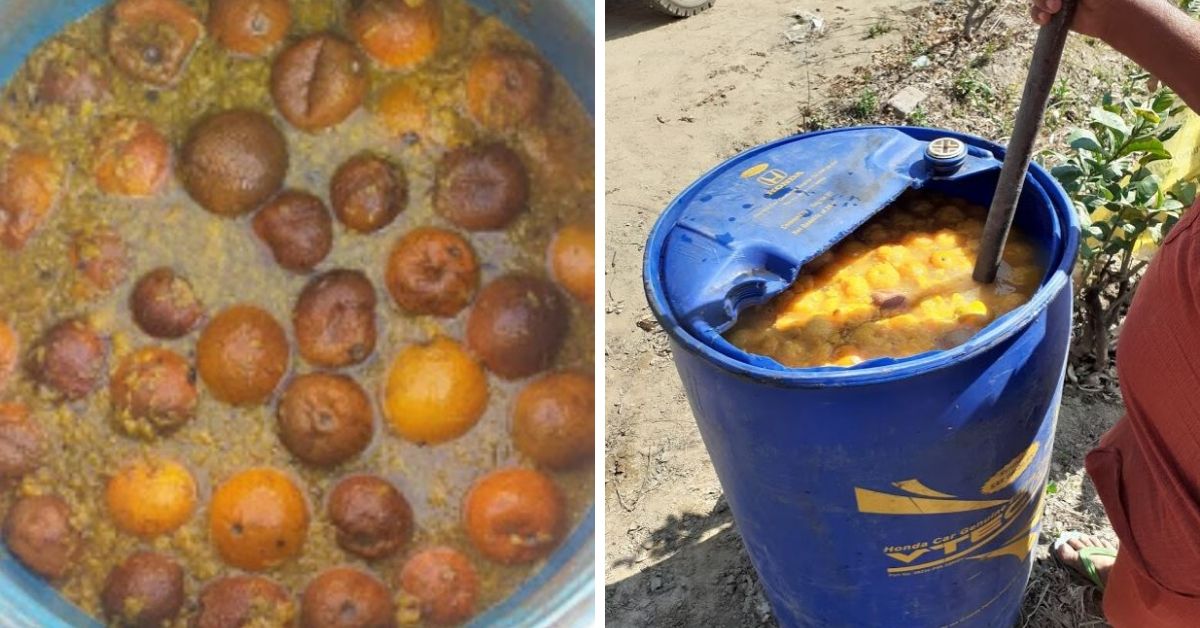
All a farmer has to do is put the fallen fruits in a drum and add water and jaggery.
“Maintain the ratio of 1:3:10. For example in 30 kilos of kinnow, 10 kilos of jaggery and 100 litres of water. Cover the mixture with a lid,” says Garg.
To make things easier for the farmers, Garg came up with two types of preparation methods.
The first process takes around 45 days to prepare the bio enzyme wherein the farmer has to open the lid every day for 15 days and then once a week. The farmer has to stir the mixture each time he opens the lid.
In the 90-days method, farmers will have to dedicate three months for the fermentation, “The lid has to be opened every day in the first month, then twice in a week and in the final round only once in a week,” adds Garg.
Understanding the Impact
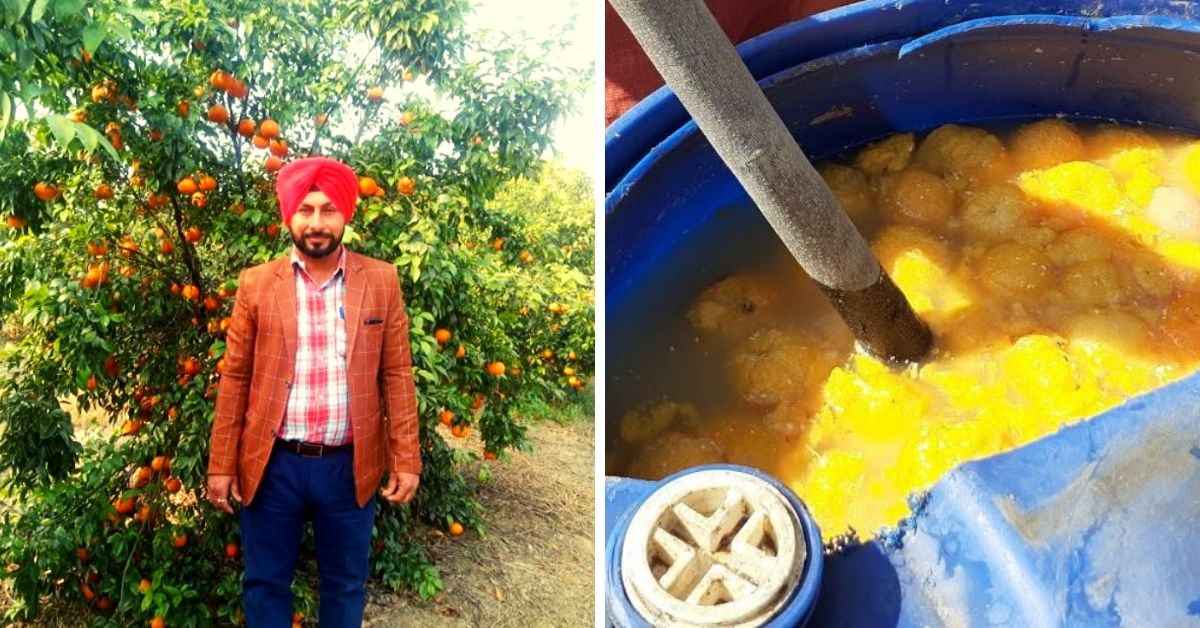
Kuldeep Singh of Mal Singh Wala village close to Faridkot joined the bio enzyme project a few months ago.
On his 11-acre ancestral land, there are over 2,000 Kinnow along with Jamun and other fruit trees that the family has been growing for decades.
Singh first prepared 10 litres of bio-enzyme from the fallen Jamun fruits and sprayed it on his 2-acre chilli fields as an experiment.
The results were beyond expectations, Singh tells TBI, “The chillies looked fresher and their colour became brighter. But most importantly, the growth of chillies increased exponentially. This solution to the fruit waste problem opened my eyes to the fact it is possible to grow food without the use of chemicals.”
Highly impressed by the outcome, Singh is currently preparing 400 litres of bio enzymes. He will not only use it in his fields but also sell it, thus generating extra revenue.
“I spend around Rs 5,000 to buy two litres of pesticides that kill harmful insects. Forty days ago, I deposited all my kinnow waste in a drum. Next month, I will spray the bio-enzyme made with them on my entire farm,” he smiles.
Another example is of Retired Colonel Rashneel Chahal who belongs to the Narinderpura village. After serving the Indian army for 23 years, he got back to his family roots and ventured into farming on his 15-acre orchard.
The huge field has 1,800 Kinnow trees and every season some part of his fruits are wasted.
Fed up with burying them in the soil, Chahal instantly grabbed the opportunity when the horticulture department approached him.
Speaking to TBI, he says, “I am currently preparing 200 litres of bio enzymes. I am positive that the results will be amazing.”
Banking on the success of farmers like Chahal and Singh, the horticulture department now plans to rope in more farmers and cut down on on-farm food losses and usage of chemicals to grow food.
Confirming the same, Shailender Kaur, Director Horticulture, Punjab tells TBI, “We are going to aggressively promote this to bust the myth that foreign disinfectants are necessary to food growth. It is high time we go back to our roots and this is a very viable solution.”
It is no secret that farmers in Punjab are trapped in the cycle of using harmful pesticides. Against that backdrop, this eco-friendly solution can inculcate good agriculture habits not only in Punjab but across India.
To know more about it, contact Vipesh Garg here
(Edited by Saiqua Sultan)
Like this story? Or have something to share?
Write to us: [email protected]
Connect with us on Facebook and Twitter.
If you found our stories insightful, informative, or even just enjoyable, we invite you to consider making a voluntary payment to support the work we do at The Better India. Your contribution helps us continue producing quality content that educates, inspires, and drives positive change.
Choose one of the payment options below for your contribution-
By paying for the stories you value, you directly contribute to sustaining our efforts focused on making a difference in the world. Together, let’s ensure that impactful stories continue to be told and shared, enriching lives and communities alike.
Thank you for your support. Here are some frequently asked questions you might find helpful to know why you are contributing?


This story made me
-
97
-
121
-
89
-
167













